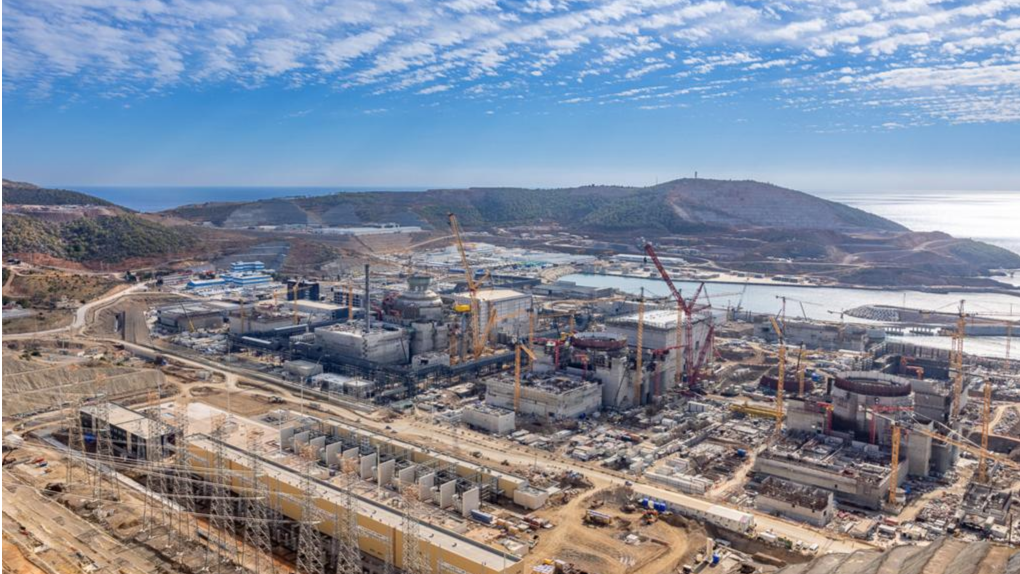
ANKARA - Türkiye's long-awaited nuclear energy ambitions are taking shape with one of its biggest energy investments, the Akkuyu nuclear power plant, set to become partially operational in 2025.
The plant, located in the southern province of Mersin, began construction in 2018 and will consist of four reactors with a total capacity of 4,800 megawatts (MW) once completed. It is expected to meet 10 percent of Türkiye's electricity demand and cut CO2 emissions by 18 million tonnes annually.
In late December 2024, Türkiye's Minister of Energy and Natural Resources Alparslan Bayraktar told reporters that the plant will start power generation in its first reactor in 2025 and have all reactors running by 2028.
READ MORE: Türkiye: Talks with China to build 3rd nuclear plant advance
Türkiye overtook Germany to become Europe's largest producer of coal-fired electricity in 2024. To meet the country's increasing electricity demand, which is projected to grow by 4 percent annually through mid-century, the Turkish government has pivoted to nuclear energy as part of its broader clean energy strategy and its efforts to achieve net-zero emissions by 2053.
The country is making significant investments in renewables to reach its ultimate goal of energy self-sufficiency, with plans to allocate $100 billion by 2035, and seeks to increase its wind and solar capacity fourfold, reaching 120,000 MW by 2035.
It also plans to triple its interconnection capacity with the European Union, targeting 77 percent of its electricity production from domestic and renewable sources by 2035.
To move toward adopting nuclear energy, the Turkish government plans to establish at least two more nuclear power plants by 2050, one in the Thrace region and the other in the Black Sea province of Sinop.
Additional small modular reactors with a combined output of 5,000 MW are also in the pipeline to further diversify the country's energy mix, with final decisions likely to be announced this year, unnamed sources told Xinhua.
READ MORE: China, Türkiye 'have potential' in clean energy cooperation
"Negotiations are ongoing with Russia and South Korea on these projects," they said. "The commissioning of Akkuyu's first reactor in 2025 will be a milestone in Türkiye's energy ambitions," one of the sources said.
"The Akkuyu plant represents not just a shift toward energy diversification but also a step toward reducing Türkiye's reliance on carbon-intensive fuels," Murat LeCompte, an Istanbul-based energy expert, told Xinhua recently.
"Nuclear energy is practical and effective because the amount of energy it provides is incomparable with other sources such as coal," he added.


